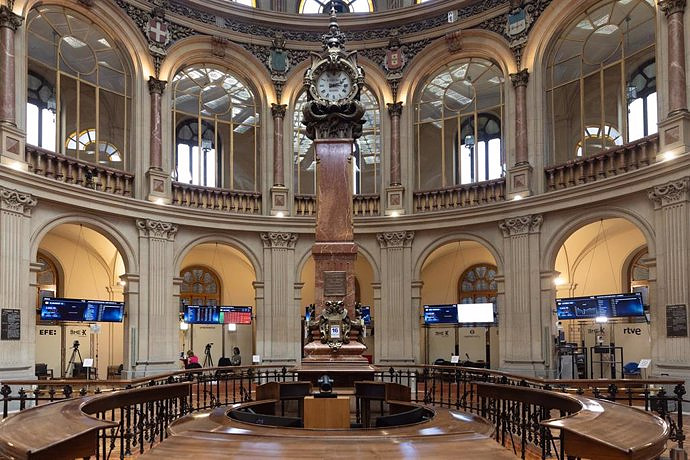LEOPOLIS, 4 Dec. (By Tetiana Astakhova, IOM Ukraine Special Communications) -
"When the war started, there was not enough time to evacuate Mariupol before it was completely besieged. We understood the risks we were running if we tried to leave the city, so we decided to wait," explains Ihor, a doctor with 30 years of experience.
Ihor and his wife Svitlana spent three weeks in the city, surrounded by Russian troops. Mariupol gained notoriety for Russia's brutal war against Ukraine. According to human rights activists, the war crimes committed in Mariupol by Russian forces are among the most serious in history.
Before the war, Ihor and his wife worked in the clinic of the Azovstal Steel Production Company. When the war started, many residents, company employees and Mariupol supporters hid from the shelling in the factory's bomb shelter.
"We had very few provisions. There was nothing, no electricity, no gas, no water, no heating. Very soon the Russian troops started shelling the city from all sides with different kinds of weapons," Ihor recalls. "We lived on the left bank, which was exactly where the most severe clashes were taking place, since their objective was to take control of the steel-producing company."
Many residential buildings were damaged in Mariupol during the attacks, but Ihor and his wife managed to cross the only bridge still under the control of Ukrainian military forces and were able to stay at a relative's house in the center of the city.
The couple soon managed to escape the besieged city when the first evacuation convoy headed for the city of Zaporizhia in southeastern Ukraine. They spent two days en route and had to go through about 15 Russian military checkpoints. When they finally reached their destination, Ihor and his wife decided to go to Lviv to join their daughter and her grandchildren.
The war forced them to move, but it did not change their main objective: to help others and save lives. In this unfamiliar environment, knowing almost no one in Lviv, they had to start from scratch and look for the right opportunity to fulfill the goal of helping other people.
A short time later they began to work as volunteers while looking for a job. Finally, after several months, the Ukrainian employment center offered them jobs as ultrasound specialists. They are now working on mobile clinics operating outside the Lviv region, with support from the local Sheptytskyi hospital and the International Organization for Migration (IOM).
The opportunity to continue practicing his medical profession has helped Ihor to keep the faith that soon they will be able to overcome all obstacles. He is always happy to be able to help members of the local community where the mobile clinics provide outpatient care and many of the people who attend medical appointments at the mobile clinics prefer to access the ultrasound performed by Ihor.
According to an IOM survey, one in three displaced people in Ukraine have limited access to health care and medicine. Most of Ihor's patients live in distant places where access to health care is a luxury.
"We provide medical assistance to the displaced, and also to the local population in several villages and small towns in the Lviv region. People are always excited when they see us coming, anxiously waiting their turn, others are coming towards us," Ihor explains. . "We can see that our assistance is crucial as they cannot easily access services like the ones we offer."
In the Lviv region, IOM mobile clinics began operating in April, after local health systems could no longer absorb the flow of people in need of immediate assistance. Thanks to the daily work of the teams, more than 50,000 people in the region are benefiting from the services provided by the mobile clinics managed by IOM.
Ihor says that early identification of pathological conditions increases the chances of referring patients to receive appropriate care, contributing to a greater recovery. For this reason he takes great care of his ultrasound machine. He knows well that many lives depend on it.
((This forum was originally published at the following link: https://storyteller.iom.int/es/stories/entre-la-vida-y-la-mu...))

 Exploring Cardano: Inner Workings and Advantages of this Cryptocurrency
Exploring Cardano: Inner Workings and Advantages of this Cryptocurrency Seville.- Economy.- Innova.- STSA inaugurates its new painting and sealing hangar in San Pablo, for 18 million
Seville.- Economy.- Innova.- STSA inaugurates its new painting and sealing hangar in San Pablo, for 18 million Innova.- More than 300 volunteers join the Andalucía Compromiso Digital network in one month to facilitate access to ICT
Innova.- More than 300 volunteers join the Andalucía Compromiso Digital network in one month to facilitate access to ICT Innova.-AMP.- Ayesa acquires 51% of Sadiel, which will create new technological engineering products and expand markets
Innova.-AMP.- Ayesa acquires 51% of Sadiel, which will create new technological engineering products and expand markets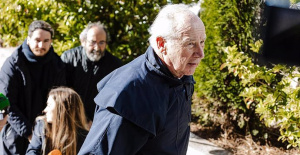 The Prosecutor's Office requests 63 years in prison for Rato and a fine of more than 42 million euros
The Prosecutor's Office requests 63 years in prison for Rato and a fine of more than 42 million euros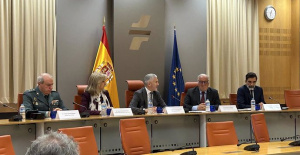 Marlaska puts more radars, surveillance on highways and motorists, and controls in the face of the increase in accidents
Marlaska puts more radars, surveillance on highways and motorists, and controls in the face of the increase in accidents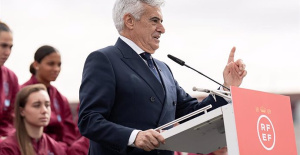 Pedro Rocha, elected new president of the RFEF
Pedro Rocha, elected new president of the RFEF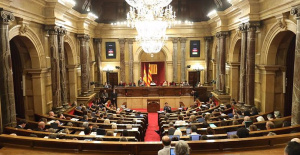 The PSC would win the elections with 40-47 seats and ERC is ahead of Junts, according to the CEO
The PSC would win the elections with 40-47 seats and ERC is ahead of Junts, according to the CEO How Blockchain in being used to shape the future
How Blockchain in being used to shape the future Not just BTC and ETH: Here Are Some More Interesting Coins Worth Focusing on
Not just BTC and ETH: Here Are Some More Interesting Coins Worth Focusing on The UA opens the call for the Impulso 2024 Awards for the best innovative business initiatives
The UA opens the call for the Impulso 2024 Awards for the best innovative business initiatives ALI, virtual assistant from Alicante, internationally recognized by the OECD
ALI, virtual assistant from Alicante, internationally recognized by the OECD Retrópolis brings the golden age of video games and computing to the UPV
Retrópolis brings the golden age of video games and computing to the UPV Looking for video games that value the neighborhoods of Valencia
Looking for video games that value the neighborhoods of Valencia A million people demonstrate in France against Macron's pension reform
A million people demonstrate in France against Macron's pension reform Russia launches several missiles against "critical infrastructure" in the city of Zaporizhia
Russia launches several missiles against "critical infrastructure" in the city of Zaporizhia A "procession" remembers the dead of the Calabria shipwreck as bodies continue to wash up on the shore
A "procession" remembers the dead of the Calabria shipwreck as bodies continue to wash up on the shore Prison sentences handed down for three prominent Hong Kong pro-democracy activists
Prison sentences handed down for three prominent Hong Kong pro-democracy activists ETH continues to leave trading platforms, Ethereum balance on exchanges lowest in 3 years
ETH continues to leave trading platforms, Ethereum balance on exchanges lowest in 3 years Investors invest $450 million in Consensys, Ethereum incubator now valued at $7 billion
Investors invest $450 million in Consensys, Ethereum incubator now valued at $7 billion Alchemy Integrates Ethereum L2 Product Starknet to Enhance Web3 Scalability at a Price 100x Lower Than L1 Fees
Alchemy Integrates Ethereum L2 Product Starknet to Enhance Web3 Scalability at a Price 100x Lower Than L1 Fees Mining Report: Bitcoin's Electricity Consumption Declines by 25% in Q1 2022
Mining Report: Bitcoin's Electricity Consumption Declines by 25% in Q1 2022 Oil-to-Bitcoin Mining Firm Crusoe Energy Systems Raised $505 Million
Oil-to-Bitcoin Mining Firm Crusoe Energy Systems Raised $505 Million Microbt reveals the latest Bitcoin mining rigs -- Machines produce up to 126 TH/s with custom 5nm chip design
Microbt reveals the latest Bitcoin mining rigs -- Machines produce up to 126 TH/s with custom 5nm chip design Bitcoin's Mining Difficulty Hits a Lifetime High, With More Than 90% of BTC Supply Issued
Bitcoin's Mining Difficulty Hits a Lifetime High, With More Than 90% of BTC Supply Issued The Biggest Movers are Near, EOS, and RUNE during Friday's Selloff
The Biggest Movers are Near, EOS, and RUNE during Friday's Selloff Global Markets Spooked by a Hawkish Fed and Covid, Stocks and Crypto Gain After Musk Buys Twitter
Global Markets Spooked by a Hawkish Fed and Covid, Stocks and Crypto Gain After Musk Buys Twitter Bitso to offset carbon emissions from the Trading Platform's ERC20, ETH, and BTC Transactions
Bitso to offset carbon emissions from the Trading Platform's ERC20, ETH, and BTC Transactions Draftkings Announces 2022 College Hoops NFT Selection for March Madness
Draftkings Announces 2022 College Hoops NFT Selection for March Madness







